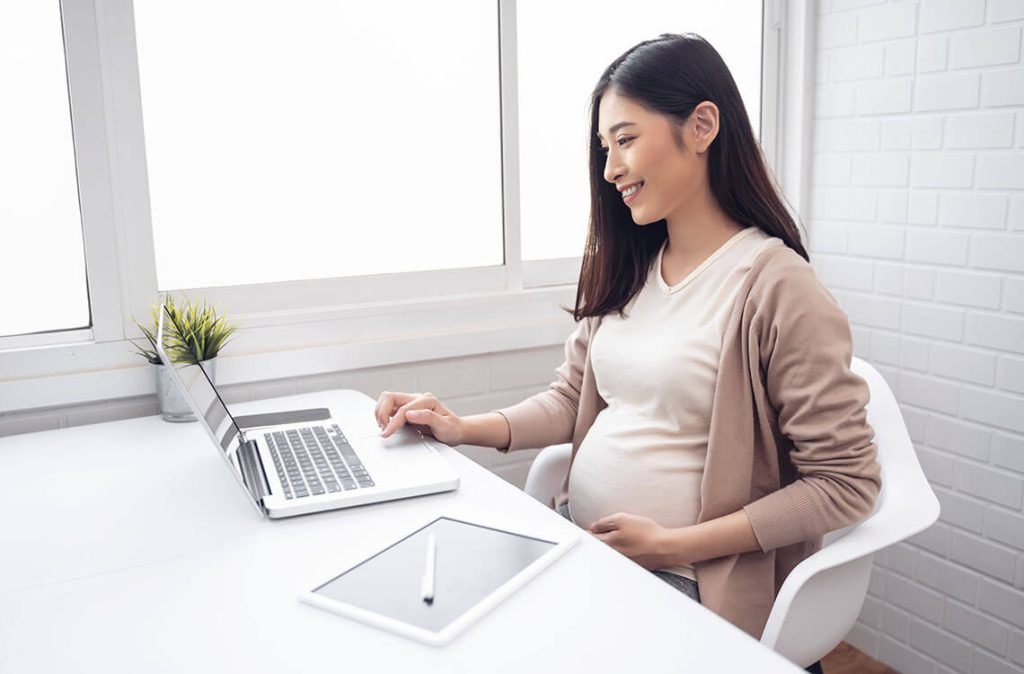For many women, being pregnant doesn’t mean a break from the workforce. If anything, it’s all business as usual at the office.
This is not to say that everyone or even every woman works in a cosy air conditioned cubicle with no worries in mind.
There are plenty of women who are drivers, factory workers, engineers, housekeepers and of course nurses, doctors.
Each job comes with its own risks and hazards. And with varying degrees of severity.
Granted, you can’t always control workplace hazards.
But here are some tips to help you and your baby stay safe:
Being Pregnant in the Work Space
There is no shortage of dangers out there in the real world. For a pregnant woman and unborn baby, those dangers multiply.
Every day things that are relatively harmless to an adult, suddenly becomes poison to an expectant mother.
Caffeine, hair dye, seafood and yes, even skincare products. The list is endless.
So it’s best to narrow down those risks that only exist or are more likely to happen where you work.
These risks are what experts call occupational hazards.
Occupational hazards typically come in five forms:
- Physical safety hazards: injuries, disability
- Chemical hazards: solvents, adhesives
- Biological hazards: diseases, infections
- Physical hazards: noise, radiation
- Ergonomic risk factors: heavy lifting
Of course, not all occupations are created equal. Some are more dangerous than others.
Those that naturally come with certain hazards are called high-risk jobs.
Here are just some examples along with the dangers:
- Healthcare: infectious diseases, chemicals
- Construction paint material, falling objects, electrocution
- Logistics: road accidents
- Housekeeping: cleaning products, slippery floor
- Security: firearms, assault,
But even working in an office may not be healthy (or safe) for a pregnant mum.
Especially if you work in a stressful, high-pressure, toxic environment.
In this case, the threats are all psychological in nature. Stress can be damaging for the body even in normal circumstances.
But when pregnant women experience high levels of stress (depression, anxiety, etc.), it can harm the baby.
Here are just some of the side effects of stress on an unborn foetus:
- Cognitive impairment and developmental delay
- Low-birth weight
- Prematurity
- Learning disorders and disabilities (ADHD, autism, etc.)
- Miscarriage
- Depression, anxiety, psychopathology in adulthood
Essential Safety Tips for Working Mummies-to-Be
Talk to Your Employer
As mentioned, each job comes with its own dangers and hazards.
Hence, to suggest a ‘one-size-fits-all’ approach is not feasible.
So, the best thing you can do is talk to your manager. See if they can arrange a risk assessment for you.
Along with mitigation procedures to help prevent or avoid those hazards completely.
But do note that some workplaces may not be as accommodating in this way.
Mitigate the Risks
If your employer is cooperative and agrees to the risk assessment, then you’re in good hands.
But that’s only the battle half won.
They need to actually do something about those risks. Just listing them down is not enough.
If the office is prone to leaks from rain, etc, creating slippery floors, then that’s the facility manager’s job to fix.
If there are wires laying around, then someone needs to remove them.
However, some risks may be beyond mitigation.
If you work at an mechanic, hospital or factory, where danger is part of the business, then there’s no going around that.
Work from Home
If your job allows you to work from home (WFH), then apply for this arrangement.
It’s the next best thing to physical attendance.
If your workplace doesn’t necessarily practice WFH, then send an email to your employer (along with reasons and receipts as to why you need it).
Sometimes people need a little bit of convincing even when the facts are staring at them right in the face.
Remember to take photos of these hazards as part of your proposal, mummies.
It’s ridiculous but it gets the job done.
However, there will be times when the nature of your work doesn’t allow you to stay at home.
So, discuss with your boss if a temporary change in role is possible.
Perhaps some clerical work instead of manual labour.
Make Your Case
Remember to make your case plausible while you’re at it, mummies.
Excuses like “there’s not enough healthy food at the cafeteria” just won’t fly.
Instead, consider iron-clad reasons like:
- Dangerous commute (high traffic, accident prone roads/train station is hazard-ridden)
- Dangerous chemicals/substances (paint thinners)
- Danger of falling objects (precariously stacked boxes, etc.)
- Dangerous equipment/machinery (power tools, construction site)
- Dangerous obstacles (trip hazards, broken tiles, etc.)
You may need to back up your proposal with some research too.
If you can, bring forth examples of real-life cases, past accidents or mishaps involving a fellow pregnant mum.
Always Be Safe While Pregnant at Work
These days, many companies are enforcing maternity privileges.
But for many careers, unsafe work environment just comes with the territory.
Some pregnant mummies may even choose to become stay-at-home spouses from the minute they find out they’re expecting.
However, for those who enjoy working, this doesn’t mean you can no longer earn a living.
In this day and age, the Internet has pretty much eliminated the need to go into a physical office.
Here are some ways that you can make money through freelance or remote work that you can do in the comfort and safety of your own home.
With that said, enjoy your pregnancy, mummies-to-be, and have a safe day at work!
Disclaimer: The information provided in this article is for informational purposes only and should not be considered as medical advice from Motherhood. For any health-related concerns, it is advisable to consult with a qualified healthcare professional or medical practitioner.
For more insightful stories and fun recipes, stay tuned to Motherhood Story!
